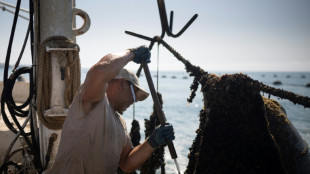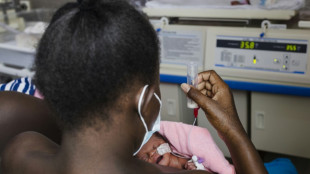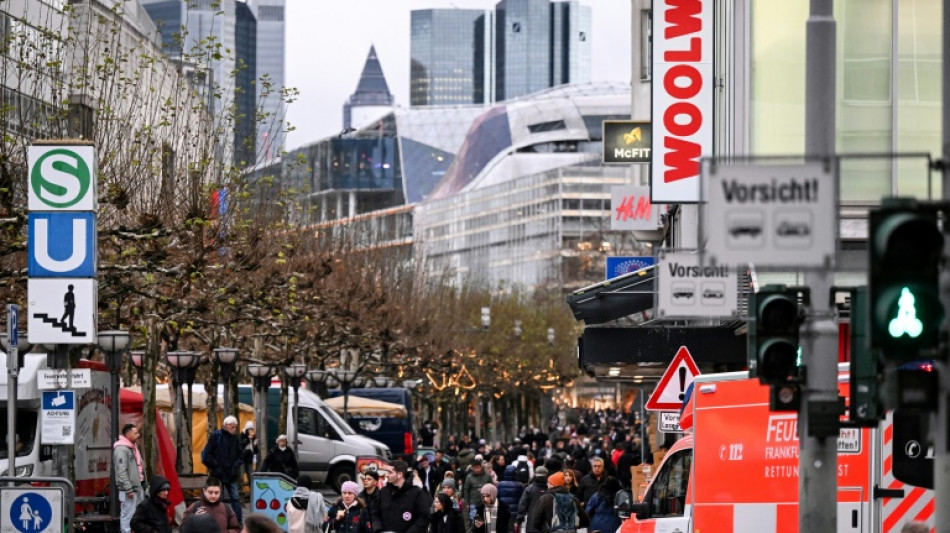
-
 Japan rips Tonga to reach Pacific Nations Cup rugby final
Japan rips Tonga to reach Pacific Nations Cup rugby final
-
Australia's ANZ bank hit with record fine over 'widespread misconduct'
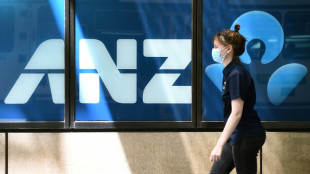
-
 Eagles top Chiefs in Super Bowl rematch as Cowboys edge Giants in NFL thriller
Eagles top Chiefs in Super Bowl rematch as Cowboys edge Giants in NFL thriller
-
Seattle's Raleigh hits 54th homer of season for MLB marks

-
 NFL Cowboys top Giants in overtime while Lions maul Bears
NFL Cowboys top Giants in overtime while Lions maul Bears
-
Trump concerned S. Korean arrests could 'frighten' investors

-
 Timeless Modric opens AC Milan account with winner against Bologna
Timeless Modric opens AC Milan account with winner against Bologna
-
Spring quick-fire hat-trick helps Racing stun Bordeaux-Begles

-
 Macau's first 'patriots' election sees low turnout
Macau's first 'patriots' election sees low turnout
-
Prince Harry says has 'clear conscience' over explosive memoir

-
 Modric opens AC Milan account with winner against Bologna
Modric opens AC Milan account with winner against Bologna
-
Schroeder seals Euro basketball title for world champions Germany

-
 Hull wins LPGA Queen City title after Jeeno four-putt bogey at 18
Hull wins LPGA Queen City title after Jeeno four-putt bogey at 18
-
Spain's political class spars over chaotic Vuelta finale

-
 Top four into Women's Rugby World Cup semi-finals as France edge Ireland
Top four into Women's Rugby World Cup semi-finals as France edge Ireland
-
Two ships set sail from Greece to join Gaza aid flotilla

-
 Amorim won't change despite 'suffering' in dismal Man Utd run
Amorim won't change despite 'suffering' in dismal Man Utd run
-
Australia stunned by Belgium, joining USA on Davis Cup scrapheap

-
 Spinners power India to win over Pakistan in Asia Cup
Spinners power India to win over Pakistan in Asia Cup
-
Bolsonaro conviction 'not a witch hunt,' Lula tells Trump in NYT op-ed
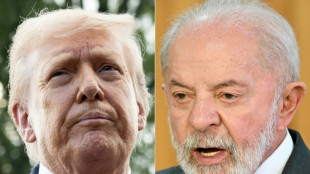
-
 'Demon Slayer' tops N.America box office with record anime opening
'Demon Slayer' tops N.America box office with record anime opening
-
Tens of thousands join Ankara protest ahead of court showdown
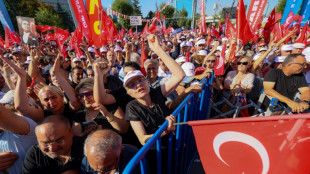
-
 Haaland-inspired Man City inflict derby demolition on Man Utd
Haaland-inspired Man City inflict derby demolition on Man Utd
-
Vuelta triumph caps Vingegaard's fight back from the brink

-
 French runner Gressier thanks anti-doping body for his world title
French runner Gressier thanks anti-doping body for his world title
-
Romania summons Russian ambassador over drone 'threat'

-
 'Palestine wins the Vuelta': Gaza demo halts cycling finale in Madrid
'Palestine wins the Vuelta': Gaza demo halts cycling finale in Madrid
-
Vuelta final stage abandoned due to pro-Palestinian protest, Vingegaard crowned

-
 PSG maintain perfect start to Ligue 1, Ethan Mbappe strikes late for Lille
PSG maintain perfect start to Ligue 1, Ethan Mbappe strikes late for Lille
-
Alleged Kirk killer had 'leftist' beliefs, Utah governor says

-
 Shakespeare family tragedy 'Hamnet' wins top Toronto film prize
Shakespeare family tragedy 'Hamnet' wins top Toronto film prize
-
Record-breaking England crush Scotland to reach Women's Rugby World Cup semi-finals

-
 Noren upstages Ryder Cup stars to win PGA Championship at Wentworth
Noren upstages Ryder Cup stars to win PGA Championship at Wentworth
-
Lookman to miss Atalanta's Champions League opener at PSG, says Juric

-
 Fraser-Pryce, Jamaica's sprint warrior queen
Fraser-Pryce, Jamaica's sprint warrior queen
-
Vuelta final stage abandoned amid huge pro-Palestinian protest

-
 India limit Pakistan to 127-9 in key Asia Cup T20 clash
India limit Pakistan to 127-9 in key Asia Cup T20 clash
-
Ethan Mbappe strikes late to give Lille win over Toulouse

-
 Fans set aside boycott calls to watch India-Pakistan cricket clash
Fans set aside boycott calls to watch India-Pakistan cricket clash
-
Rain denies England and South Africa a series decider

-
 Seville and Jefferson-Wooden enjoy maiden world titles, US savour field of gold
Seville and Jefferson-Wooden enjoy maiden world titles, US savour field of gold
-
Itoje to rehab with England as Farrell omitted from training squad

-
 Marc Marquez rolls out Messi-inspired celebration as seventh MotoGP title looms
Marc Marquez rolls out Messi-inspired celebration as seventh MotoGP title looms
-
Seville delighted to win world 100m title in front of Bolt

-
 Seville sparks Jamaican men's sprint renaissance
Seville sparks Jamaican men's sprint renaissance
-
Starmer says UK won't tolerate racial intimidation after far-right rally
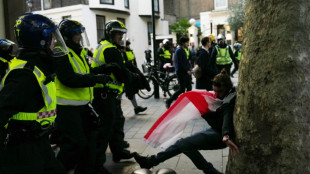
-
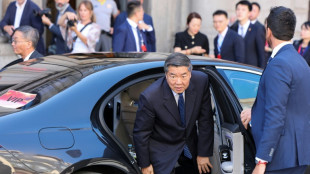 New round of US-China trade talks kicks off in Madrid
New round of US-China trade talks kicks off in Madrid
-
France edge Ireland in Women's Rugby World Cup quarter-final thriller

-
 Seville wins Tokyo 100m for first Jamaican men's sprint title in 10 years
Seville wins Tokyo 100m for first Jamaican men's sprint title in 10 years
-
Marc Marquez nears seventh MotoGP title after San Marino triumph


Germans reluctant to open wallets despite easing inflation
The cost-of-living crisis may be easing in Germany but that has not sparked a shopping frenzy just yet in a country where, as a recent survey suggests, people fear inflation more than war.
Inflation in Europe's biggest economy has fluctuated between 1.6 and 2.6 percent over the past year, far below the 70-year high reached in 2022 after Russia's full-scale invasion of Ukraine triggered an energy crisis.
The European Central Bank looks set to hold interest rates steady Thursday for the first time in almost a year after a lengthy easing cycle, with officials increasingly confident that prices have stabilised.
But with the domestic economy still stuck in the doldrums and the threat of US tariffs looming, Germans are hesitant to start spending again. Here are some questions and answers on the topic.
- Why are Germans still worried about inflation? -
While inflation rates have been steadily easing for months, prices remain around 20 percent over 2020 levels, and consumers complain about elevated costs of everything from electricity to groceries and leisure activities.
Chemistry student Tim Scheider has had to forgo attending his favourite music festival outside Berlin after the price of a three-day pass increased to 220 euros ($260), more than double the cost in 2019.
"It has become incredibly expensive over the last two or three years... It's madness," the 27-year-old told AFP.
"Life has become a bit more difficult with the rising prices," said Alkim, a Turkish aeronautics student in the western city of Osnabrueck, who has had to cut back on his diving hobby and only buys the cheapest pasta.
Persistent inflation has also fuelled calls for some unusual measures.
During a heatwave earlier this month, Greens party MPs in Berlin urged an "ice cream price cap" limiting the cost of a scoop to 50 cents so children from poorer families could still enjoy the treat.
- How do we know people are not spending? -
According to a regular survey published by pollsters GfK and Nuremberg Institute for Market Decisions (NIM) in May, saving rates are on the increase.
Consumer sentiment "remains extremely low," according to the survey, blaming US President Donald Trump's unpredictable trade policy and worries about the weak domestic economy, which has been in recession for the past two years.
There is also little sign of shoppers starting to hit the streets in greater numbers -- German retail sales fell in May, April and March, according to official statistics.
- Why is there such caution? -
As well as worries about Trump's tariff blitz and the crisis-wracked domestic economy, experts say many consumers are still scarred from the 2022 inflation shock.
"It can take one to five years for consumer perception to align with reality," said Matthias Diermeier from the IW economic research institute.
On average, 3,000 people surveyed in December by the Cologne-based institute estimated 2024 inflation at 15.3 percent -- in reality, it was only 2.2 percent.
The gap is even more pronounced among supporters of radical parties, such as the far-right AfD and far-left BSW.
Historical experience has also left Germans with a deep aversion to rising prices -- a bout of destabilising hyperinflation in the 1920s paved the way for the rise of the Nazis.
A recent survey by an army research centre showed German consumers fear rising prices more than a war between the West and Russia.
- Why should consumers spend more? -
A pick-up in consumer spending is crucial to help revive the eurozone's traditional powerhouse economy and offset prolonged weakness in the manufacturing sector, which has historically been a key source of growth.
But with memories of the inflation surge still raw, consumers seem unlikely to come to the rescue any time soon.
"People may well suspect that -- since the news has constantly been repeating in recent years that everything is more expensive -- it is indeed still getting more expensive," said Lisa Voelkel, from the Federation of German Consumer Organisations.
T.Germann--VB

